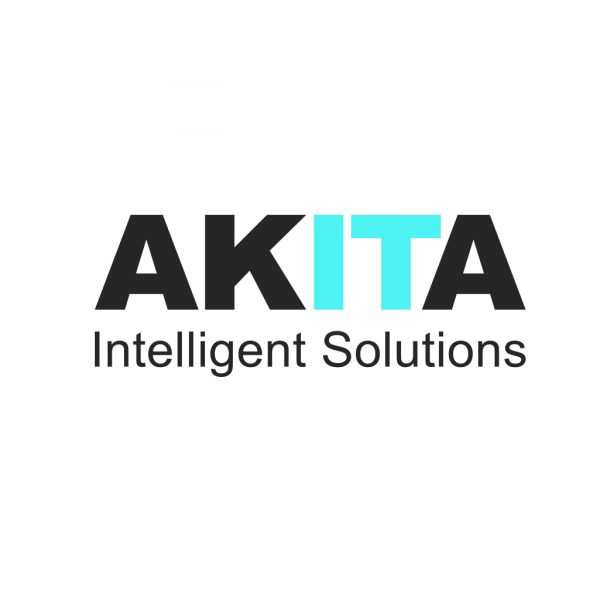In the facilities management sector, success depends on the ability to deliver efficient, compliant, and cost-effective services to clients.
But managing multiple contracts, assets, workforces, and regulatory requirements often stretches traditional tools beyond their limits.
Many FM providers still rely on disconnected systems or manual processes, leaving little visibility of performance and even less agility to respond to client demands.
The Role & Challenges Of Facilities Management Software in Modern Business
The facilities management industry is evolving rapidly, with clients now expecting far more than reactive maintenance and asset tracking. They want transparency of service delivery, real-time performance data, demonstrable cost efficiency, and stronger sustainability credentials.
Providers that continue to rely on outdated or disconnected systems risk being left behind — not because they can’t deliver the work, but because they can’t evidence performance at the level customers now demand.
Traditional Computer-Aided Facilities Management (CAFM) and Computerised Maintenance Management System (CMMS) platforms were originally built to manage maintenance activity and asset records. They handle scheduling, fault logging, and job histories well enough, but they typically operate in isolation from wider business functions such as finance, HR, commercial reporting, and client relationship management.
This creates operational silos: maintenance data gets trapped in the system, finance teams must manually reconcile costs, HR has no view of resource utilisation or compliance requirements, and board-level reporting becomes fragmented or retrospective. Even where CAFM/CMMS tools offer reporting add-ons, they still only reflect the maintenance perspective, not the broader commercial picture that modern FM clients expect.
As the industry shifts towards performance-led contracts, outcome-based service delivery, and tighter regulatory scrutiny, the lack of integration in traditional platforms becomes a commercial liability rather than a technical inconvenience. Modern FM clients now expect providers to demonstrate service performance in real time — not just activity logs — including:
-
What work has been completed and how efficiently it was delivered
-
The financial value and contract profitability behind service activity
-
Alignment with ESG, compliance, and organisational objectives
-
Real-time SLA and KPI transparency, not retrospective reporting
-
Readiness for predictive maintenance and IoT-driven insights
-
The ability to provide automated client-facing dashboards and evidence of performance
Legacy CAFM and CMMS systems cannot support this end-to-end visibility, as their data remains trapped within operational workflows. Without a connected platform, providers can deliver the work but cannot evidence value — a growing disadvantage in procurement-led tenders where digital maturity now directly influences contract wins and renewals.

Why Microsoft Facilities Management Software Is Different
Unlike standalone CAFM or CMMS systems, Microsoft facilities management software is built as a fully integrated business platform rather than an isolated maintenance tool.
Using Microsoft Dynamics 365 to run operations brings facilities management into the wider operational ecosystem by connecting asset tracking, maintenance scheduling, compliance, engineer dispatch, and contractor management with finance, HR, commercial reporting, and customer communication – all in one environment. This removes the data fragmentation that limits legacy systems and replaces it with live, organisation-wide insight.
Because everything sits on a unified Microsoft cloud, FM providers gain real-time visibility of contract profitability, workforce utilisation, SLA performance, and asset lifecycle costs without manual reconciliation or bolt-ons. Finance teams can track spend against budgets instantly, HR can align training and certifications with operational demand, and leadership teams can evidence value through automated Power BI dashboards. This makes it far easier to meet procurement expectations around transparency, ESG reporting, and performance accountability.
Crucially, Dynamics 365 is designed for forward-looking service models. Predictive maintenance, IoT telemetry, and automated client reporting become natural extensions of the platform rather than separate investments. The result is not just operational efficiency, but a measurable uplift in commercial competitiveness — because providers can prove performance, not just deliver it.
Key Benefits of Microsoft Dynamics 365 for Facilities Management
1. End-to-End Contract and Asset Oversight
FM providers manage complex portfolios of client contracts, each with its own service-level agreements (SLAs). Microsoft's facilities management solution centralises asset and contract data, ensuring teams can meet obligations, reduce risk, and demonstrate value to clients.
2. Proactive Maintenance and Reduced Downtime
By automating preventive maintenance schedules, FM companies can reduce costly reactive callouts and ensure client assets remain operational. Work order tracking helps prove compliance with SLAs and improves client satisfaction.
3. Efficient Workforce and Contractor Management
Dynamics 365 enables seamless scheduling and monitoring of internal staff and third-party contractors. Mobile access means tasks can be assigned and updated in real time—improving productivity and accountability across sites.
4. Transparent Client Reporting
Through Power BI integration, FM companies can deliver real-time dashboards and reports that give clients visibility of costs, maintenance histories, and compliance performance. This strengthens trust and can support contract renewals.
5. Financial Control and Cost Efficiency
Because Dynamics 365 integrates directly with finance, FM providers can monitor contract profitability, track costs against budgets, and identify opportunities to improve margins—all within the same system used to deliver services.
6. Compliance and Risk Management
Health, safety, and environmental compliance are critical in facilities management. Dynamics 365 provides audit trails, automated alerts, and reporting tools that simplify compliance tracking and reduce the risk of contract penalties.
7. Scalability to Support Growth
Whether expanding into new regions or managing larger, more complex portfolios, FM companies can rely on Dynamics 365’s scalability. The system grows with the business, avoiding the need to stitch together multiple platforms as services expand.
Microsoft Dynamics 365 vs Traditional Facilities Management Software
Traditional CAFM or CMMS platforms can handle core facilities tasks such as asset tracking, job allocation, and maintenance scheduling. However, they typically operate in isolation and often require manual data transfers into finance, HR, or ERP systems to build a complete operational picture.
This slows decision-making and introduces the risk of errors or duplicated work. By contrast, Dynamics 365 natively integrates these functions within a single platform, removing silos and ensuring data flows automatically between departments. This means:
-
Maintenance costs can be automatically tracked against budgets in the finance module and reconciled in real time, giving finance teams immediate clarity on profitability and cost overruns.
-
HR teams can align staffing, training, certifications, and shift planning directly with operational demand, helping ensure the right competencies are available at the right time.
-
Power BI integration provides advanced analytics, dashboards, and predictive insights for leadership teams, enabling more strategic planning around asset lifecycle management, capacity planning, and contract performance.
Why Does The Right Software Matter For Facilities Management Providers?
For facilities management companies, operational efficiency directly drives profitability, retention, and service quality. Traditional software focuses narrowly on maintenance workflows, leaving gaps in financial visibility, resource planning, and performance reporting. This creates friction when scaling operations or when trying to differentiate in a competitive bid process. Dynamics 365 closes this gap by providing an integrated, end-to-end platform that brings together service delivery, finance, workforce management, and compliance tracking in one environment.
The result is not only smoother internal operations, but also stronger commercial positioning. Facilities providers can present transparent service-level reporting, demonstrate regulatory and safety compliance more robustly, and deliver a more consistent customer experience. This strengthens trust with clients, reduces operational leakage, and empowers providers to win and retain larger, higher-value contracts.
Making The Right Choice: Why Choose Microsoft Facilities Management Software
The facilities management industry is evolving rapidly, with clients now expecting far more than reactive maintenance and asset tracking. They want transparency of service delivery, real-time performance data, demonstrable cost efficiency, ESG alignment, and clear evidence that their provider is operating proactively rather than reactively. Providers still reliant on disconnected CAFM or CMMS systems are increasingly disadvantaged: they lack a single source of truth, reporting becomes manual and time-consuming, and data needed for board-level conversations is fragmented or unavailable.
Microsoft facilities management software enables FM organisations to stay ahead of these rising expectations by unifying contract delivery, workforce management, asset oversight, compliance, financial control, and client reporting within one connected platform. This creates a live operational picture that leadership teams can actually act upon — without the need for spreadsheets, bolt-on tools, or third-party middleware.
Because all data sits in an integrated Microsoft environment, everything from job costing to engineer utilisation to contract profitability becomes visible in real time. This gives FM providers a strategic advantage: instead of simply reacting to service issues, they can move to predictive and preventative decision-making — which in turn improves margins, safeguards SLAs, and strengthens customer trust.
For facilities management companies focused on scaling their services, proving value to clients, and increasing competitiveness in procurement-led sales cycles, Dynamics 365 provides the digital infrastructure required to modernise operations and differentiate from legacy providers.
Looking to explore the potential of Microsoft facilities management software solutions? Get in touch:





